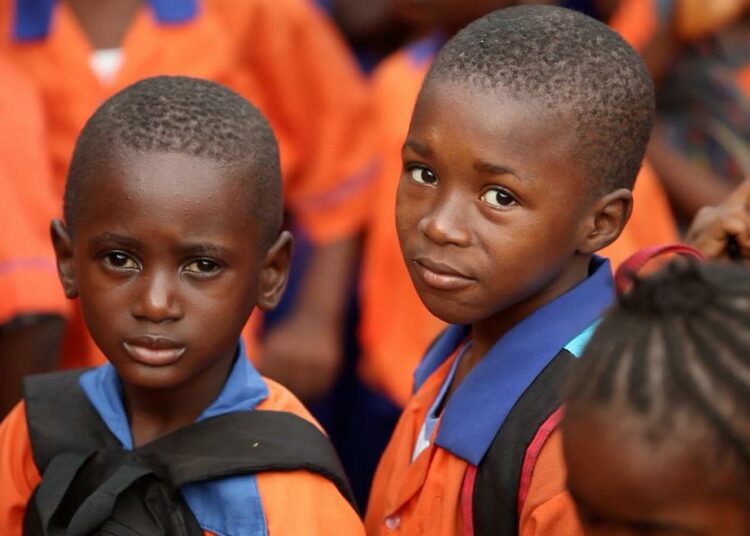In Nigeria, the sight of children as young as five hawking goods on busy highways, scrubbing floors in strangers’ homes, or begging for alms under the scorching sun is a grim reality.
These children, often referred to as almajirai, street hawkers, or underage domestic workers, are trapped in cycles of exploitation that rob them of education, safety, and childhood.
While poverty and cultural traditions like the almajiri system perpetuate this crisis, government agencies, like the National Orientation Agency (NOA), struggle to
mitigate the problem amid systemic failures and competing humanitarian crises.
The crisis of child labour in Nigeria is one of the highest rates of child labour globally. According to the International Labour Organisation (ILO), 15 million Nigerian children under 12 are engaged in domestic labour, while 25 percent of the country’s 80 million children under 14 work in hazardous conditions.
These children are found in almost every sector.
In the area of street hawking, children vend goods like sachet water, snacks, and phone accessories on highways, where they face risks like traffic accidents, sexual violence, and abduction. Many are trafficked from rural areas to cities under the guise of fostering.
Also, ‘forced begging’ is predominant across the nation. The almajiri system, once regarded as a revered Qur’anic education tradition, has devolved into a child trafficking network where boys as young as five are sent to live with mallams (teachers) and forced to beg for daily survival.
Similarly, domestic servitude has become a major challenge as underage girls, often from impoverished families, are sent to work as housemaids where they endure physical abuse, rape, and even death. Cases like the torture and murder of 10-year-old Joy Adole by her employers highlight the brutality they face.
Research has shown that poverty and broken systems are the major contributing factors in underage labour. Scholars pointed out that Nigeria’s economic collapse, exacerbated by inflation, unemployment (projected at 40.6 percent in 2023), and insecurity, forces families to send children into labour.
In the north, parents believe the almajiri system offers religious education, but in reality, children are left to fend for themselves on the streets.
Although Nigeria’s Child Rights Act (2003) prohibits child labour, only 35 of 36 states have adopted it, with Kano obviously resisting. Even where laws exist, enforcement is lax while labour inspectors are understaffed and prosecutions for abuse are rare.
There is also cultural and religious resistance which is widely accepted and practiced in most parts of Nigeria.
For instance, efforts to ban street begging or reform the almajiri system face backlash. When northern governors repatriated almajirai during COVID-19 (discovering many were infected with the virus), critics accused them of targeting Islamic education rather than addressing poverty.
The orientation agency has a mandate to promote policies like child rights and education.
However, its impact remains limited due to awareness campaigns, policy advocacy, and community engagement.
In the area of awareness drives, the agency partners with groups like the National Agency for the Prohibition of Trafficking in Persons (NAPTIP) to educate communities on the dangers of child labour.
For example, it runs sensitisation programmes in schools and the media to discourage street hawking.
In policy advocacy, the agency pushes for full domestication of the Child Rights Act and supports initiatives like the National Action Plan for the Elimination of Child Labour (2021-2025). Under community engagement, it works with local leaders in some states to discourage parents from sending children to Almajiri schools or urban centres for domestic work.
However, efforts of the agency are often hampered by underfunding, bureaucratic inefficiency, and cultural resistance.
The fact remains that, without parallel investments in poverty alleviation and education, campaigns alone cannot dismantle systemic exploitation.
To truly address child labour, the country must endeavour to enforce existing laws by strengthening labour inspections and prosecuting abusive employers.
There is also a need to expand education access by integrating Almajirai into formal schools and eliminating fees that push families toward child labour.
Poverty must be targeted holistically by deliberate policy frameworks that create cash transfer programmes and vocational training for parents which could reduce reliance on children’s income.
As the ILO’s 2024 report emphasises, data-driven policies are critical, but political will is even more urgent. Until then, Nigeria’s children remain shackled to a cycle of exploitation and their futures traded for survival.
–Oloniyo is a political affairs analyst and public commentator.





